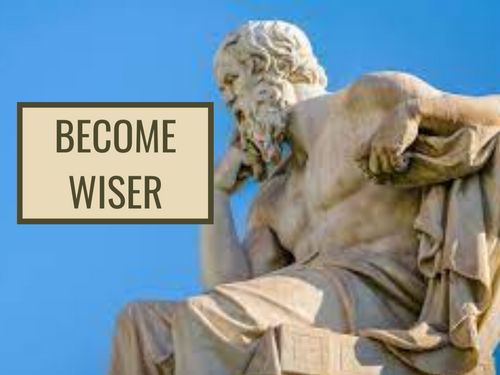8 ideas from Pirsig that will make you smarter
Sep 06, 2021 · 2 mins read
0
Share

Robert Pirsig wrote Zen and the art of motorcycle maintenance, one of the most popular pop philosophy books of all time. Learn eight ideas from Pirsig that will make you smarter👇👇👇
Save
Share
What is common sense? Common sense holds a premium in our society. But Einstein said common sense is “just a bundle of prejudices acquired before the age of eighteen.” The thread that holds this bundle together is frayed and often snaps upon a little pressure.
Save
Share
Physics is weird. Contemporary physics becomes “more and more weird as you get into it.” At the subatomic level, reality is fluid and unpredictable. The paradox of science is better equipment has produced more mysteries instead of more clarity.
Save
Share
What is true? Pirsig writes, “the tests of truth are logical consistency, agreement with experience, and economy of explanation.” Falsehoods, then, are ideas that are inconsistent, at odds with lived experience, and needlessly ornate.
Save
Share
Confidence vs dedication. Real confidence is calm. When people shout their principles from the rooftops with fanatic dedication, it’s often because their principles are internally in doubt.
Save
Share
A person is a jungle. A human is not a creature, but a whole jungle. You are the “end product of three and a half billion years of the history of the entire world.” Complete self-knowledge may be impossible - can a jungle trace back its full history?
Save
Share
Borders are needed. A cell has cell walls, a human body has skin, and nations have borders. To survive, a system needs stability and stability can only be had with borders that keep external chaos at bay.
Save
Share
Borders need to be porous. A cell needs nutrition from outside, the human body takes in oxygen, and nations trade beyond their borders. To thrive, systems need to stay dynamic and their borders can’t be completely closed off.
Save
Share
Good is a noun. We typically use good as an adjective - a good dog, a good day, etc. But Pirsig argues “good” has an objective existence. Good is a fundamental quality. Things don’t have qualities, qualities pass through things.
Save
Share
Bottom line. Science and common sense provide less than perfect explanations of the world. The louder a person’s dedication is, the quieter his inner confidence might be. Borders are important - but without any openings to the outside world, they suffocate.
Save
Share
0